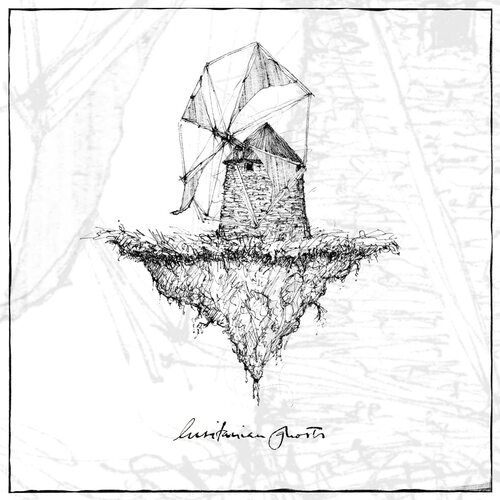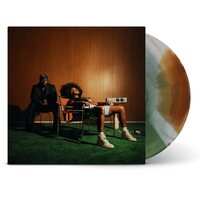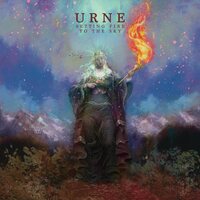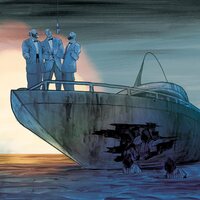This album is about living your life against the odds, believing in yourself and doing right by every moment - being Quixotic, if you can view madness in a positive way, says Neil Leyton, the Lisbon-born songwriter and producer who founded the Lusitanian Ghosts collective with Swedish musician Micke Ghost to recast the lost chordophone violas, regional instruments of Lusitania (ancient Portugal), as the basis of their socially-charged 21st century indie folk-rock. At turns heady, rousing and reflective, Exotic Quixotic follows Lusitanian Ghosts' self-titled 2019 debut, an album where the traditional rock set-up of guitar, bass and drums foregrounded the near-extinct sounds of chordophones, regional string instruments some of which almost went extinct in the 20th century. Lusitanian Ghosts was born from a desire not just to save these instruments from extinction, but to explore their relevance in contemporary life. The resulting sound recalls the folk indie rock approach of recent years while building on ancient European tradition and the sense of solidarity with the dispossessed, with the outsider. Now the modern six-string guitar is absent entirely, replaced with chordophones, namely the violas Amarantina, Braguesa, Terceira and Campaniça. Even the snare of drummer and percussionist João Sousa has been replaced on several tracks by the Adufe, a square tambourine-style percussion piece of Moorish origin. Musically, it's all chordophones, bass and percussion, but thematically Exotic Quixotic delivers a quiet undercurrent of socio-political messages of anti-fascism, freedom and hope: 10 different snapshots on life, love and death. Recorded on tape at Clouds Hill studio in Hamburg during the course of a week, engineered and mixed by Sebastian Muxfeldt, the album was mastered next door at Soundgarden Studio by Florian Siller.
Release date:
January 20, 2023
Label:
Install our app to receive notifications when new upcoming releases are added.

Recommended equipment and accessories
-

Cartridges - Top Picks
A selection of turnatble cartridges that provide great performance and sound quality
-

Nagaoka MP-110H Cartridge
Features a high-quality elliptical stylus that provides excellent tracking and minimizes distortion, delivering a detailed sound reproduction with an output voltage of 5.0 mV
-

Phono Preamps - Top Picks
A selection of the best phono preamps for your turntable setup
-

Ortofon 2M Blue Premounted
Mounted on the SH-4 Black Headshell, this setup delivers exceptional clarity, dynamic range, and accurate sound reproduction.
-
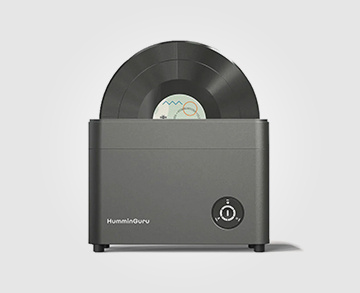
HumminGuru: Ultrasonic Vinyl Record Cleaner
Advanced ultrasonic technology with customizable cleaning cycles and a large tank capacity to thoroughly remove dust, dirt, and contaminants
Featured Upcoming Vinyl
-

Drayton Farley A Heavy Duty Heart
One Riot Records
March 27, 2026 -

Juni Habel Evergreen In Your Mind
Basin Rock
April 24, 2026 -

Charlotte Cornfield Hurts Like Hell (Yellow)
Merge Records
March 27, 2026 -

Powerwolf Wildlive Live at Olympiahalle [2xLP]
Napalm Records
February 27, 2026 -

Foy Vance The Wake (Blue) [2xLP]
Rounder
March 13, 2026 -

Immolation Descent (red/yellow/black Marbled)
Nuclear Blast
April 10, 2026 -

Dan Byrne This Is Where The Show Begins
Frontiers New Recordings Physical Only
May 22, 2026 -

Blk Odyssy Mood Control (Green/Brown/White)
Earthchild
February 27, 2026 -

Röyksopp Nebulous Nights - An Ambient Excursion Into Profound Mysteries [3xLP]
Dog Triumph
March 27, 2026 -

Urne Setting Fire to the Sky
Spinefarm
February 27, 2026 -

Coscradh Carving The Causeway To The Otherworld
20 Buck Spin
February 20, 2026 -

Lammping & Drew Smith & Marker Starling RISKY
We Are Busy Bodies
February 20, 2026 -

Gia Margaret Singing (Orange)
Jagjaguwar
April 24, 2026 -

Shy One Mali
Touching Bass
March 13, 2026
